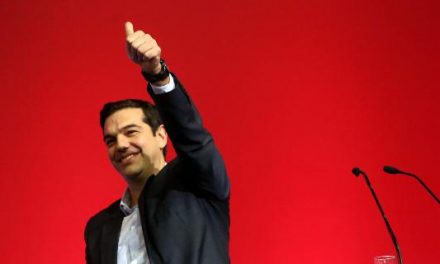An examination of UK influence in the EU and how an exit could affect EU policymaking.
By SIMON HIX
As we head towards the U.K. referendum, a key issue in the debate centers on whether Britain has become isolated in the EU. If it has, perhaps the U.K. would be better off outside the EU, so the argument goes. But if the British do vote for Brexit and then have to trade with the EU, the U.K. would in fact find itself isolated with very little influence over regulatory standards in the single market.
So which is better?
To shed some light on this dilemma, a recent VoteWatch report looks at Britain’s role in the European Council and the European Parliament, and examines what the EU might look like without the U.K., in terms of the policy mix in the single market.
VoteWatch analyzed voting records of the U.K. government in the Council and U.K. MEPs between 2004 and 2015. EU legislation is proposed by the European Commission and is amended and adopted by a qualified-majority vote (QMV) in the Council, as well as a majority in the European Parliament. Whether the U.K. government wins or loses in the Council, and whether U.K. MEPs find themselves on the winning or losing side in votes in the European Parliament, are therefore good indicators of whether the EU adopts legislation in support of or against U.K. interests.
Where the Council is concerned, there is some evidence the U.K. government is now more often out-voted under qualified-majority voting than it used to be. Between 2004 and 2009, for example, Britain was in the losing minority side 2.6 percent of the time. That rate climbed to 12.3 percent from 2009 to 2015.
In this later period, the U.K. was by far the most likely member country to be on the losing side and more than twice as likely to lose than the second and third most frequent “losers” (Germany and Austria, who were on the losing side of the vote 5.4 percent of the time). In terms of raw numbers, since 2004, Britain has been outvoted in the Council 105 times (48 No votes and 57 Abstentions) and 82 of these have been since 2009 (36 No votes and 45 Abstentions).
Britain’s track record in the European Parliament doesn’t paint a much better picture.
In the 2009-2014 session and so far in the 2014-2019 session, British MEPs have been less likely to be in the winning majority in roll call votes than MEPs from any other member country. Between 2014 and the end of 2015, for example, the majorities of the MEPs from every other member country found themselves on the winning side on average 90 percent of the time, while the majority of U.K. MEPs voted with the winning majority only 66 percent of the time.
Put another way: In almost one third of all roll call votes, most British MEPs voted against the majority.
The main reason for this is that British MEPs are not well represented in the three dominant political groups: the European People’s Party (EPP), the Socialists and Democrats, and the Alliance of Liberals and Democrats for Europe. With British Conservative MEPs no longer in the EPP, and more UKIP MEPs and fewer Labour and Liberal Democrat MEPs, there are now only 21 British MEPs (out of 73) in the three main political groups in the Parliament.
These numbers do not make for very good reading for the Remain campaign. Nevertheless, the official Council voting records and the roll call votes in the Parliament do not tell the full story of EU decision making.
***
Where the Council is concerned, another way to think about the figures is that the U.K. government has voted to support EU legislation 97 percent of the time since 2004. Research on connections between the governments’ officials in Council working groups also shows that the U.K. is still very much at the center of Council decision making. Most officials from most member countries say U.K. government officials are their first point of contact when preparing legislation.
This suggests that while Britain might lose in some votes, it still plays a key role in influencing other countries’ positions in EU policymaking, and particularly the positions of its main allies: Denmark, the Netherlands, Sweden and Ireland.
Similarly, British MEPs continue to win key agenda-setting positions in the European Parliament. Since 2004, two British MEPs have been vice-presidents of the Parliament, three have been Quaestors (responsible for Parliament administrative matters), four have been political group leaders, and 10 have been committee chairs. Also — and perhaps most importantly for the U.K.’s interests in the single market — a British MEP has chaired the Internal Market committee continuously since 2004.
Other key positions of power in the European Parliament are rapporteurships: the MEPs who author reports on legislation, proposing amendments to laws. British MEPs have won many rapporteurships (224 between 2004 and 2009 and 180 from 2009 to 2014). Since 2004, British MEPs have (co-)authored more reports on co-decision legislation than MEPs from any other member country except Germany.
On the other side of the debate, we looked at what would happen were Britain to leave the EU.
The U.K. runs a high risk of becoming isolated outside the EU, as the U.K. would no doubt continue to trade with the EU and have to apply most EU rules to gain access to the single market.
If the U.K. were to vote to leave, there would be significant consequences for policymaking within the Union. From the voting records of British MEPs in the European Parliament, we could also identify five potential effects of Brexit:
· More regulatory burden on EU businesses: The majority in the Parliament in support of “cutting red tape” would be much smaller and more stable without the British MEPs;
· Weaker copyright protection: The majority in support of copyright protection would be very narrow without the British MEPs;
· A larger EU budget (relative to GDP): There would be greater support for increasing the EU budget, and the anti-budget expansion coalition in the Council would be weaker;
· More tax harmonization: Majorities in Parliament in favor of harmonizing tax bases and a financial transactions tax would grow;
· A more costly energy policy: There would be less support for nuclear power and more opposition to shale gas without the British MEPs or the U.K. government in the Council.
***
Put simply, if the U.K. left the EU, Britain’s main trading partner would most likely have a more highly regulated market than it does now, and the Britain would have no say over the making of these regulations.
The main conclusion from our report is that if the U.K. votes to remain in the EU — which is far from certain, of course — the British government and the leadership of Britain’s parties will need to re-engage with mainstream EU politics if they want to grow their waning influence in the Council and Parliament, and on the wider political agenda of the EU.
The Conservatives, for example, may have to reconsider their relationship with the EPP — with perhaps a new EPP-Conservative alliance — and the Labour Party will need to decide whether it can once again take a more central role within the Socialists and Democrats group.
If Britain’s political elites are unwilling to re-engage, the country will face a stark choice: to be isolated inside or outside the EU.
Simon Hix is professor of political science at the London School of Economics and Political Science, senior fellow on the ESRC U.K. in a Changing Europe program, and chairman of VoteWatch.


















